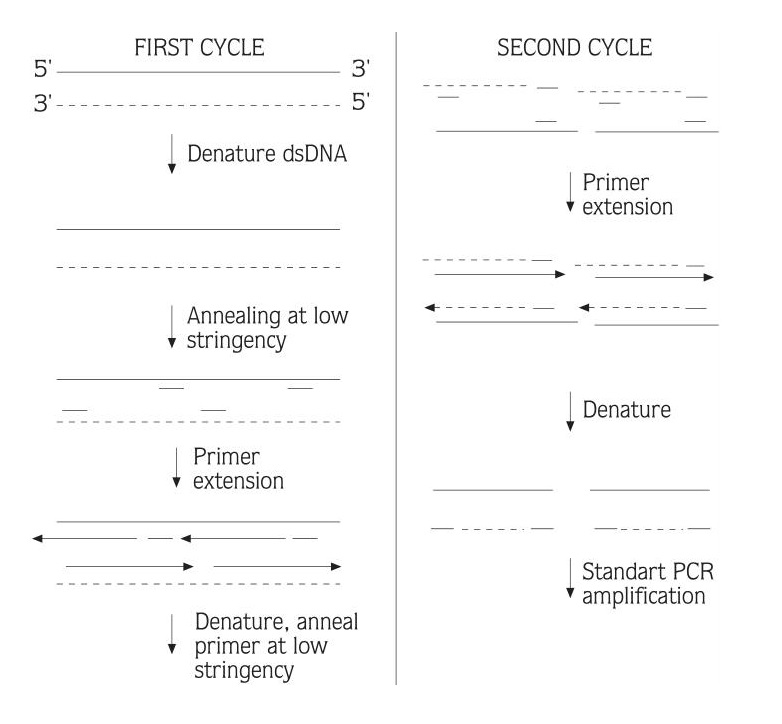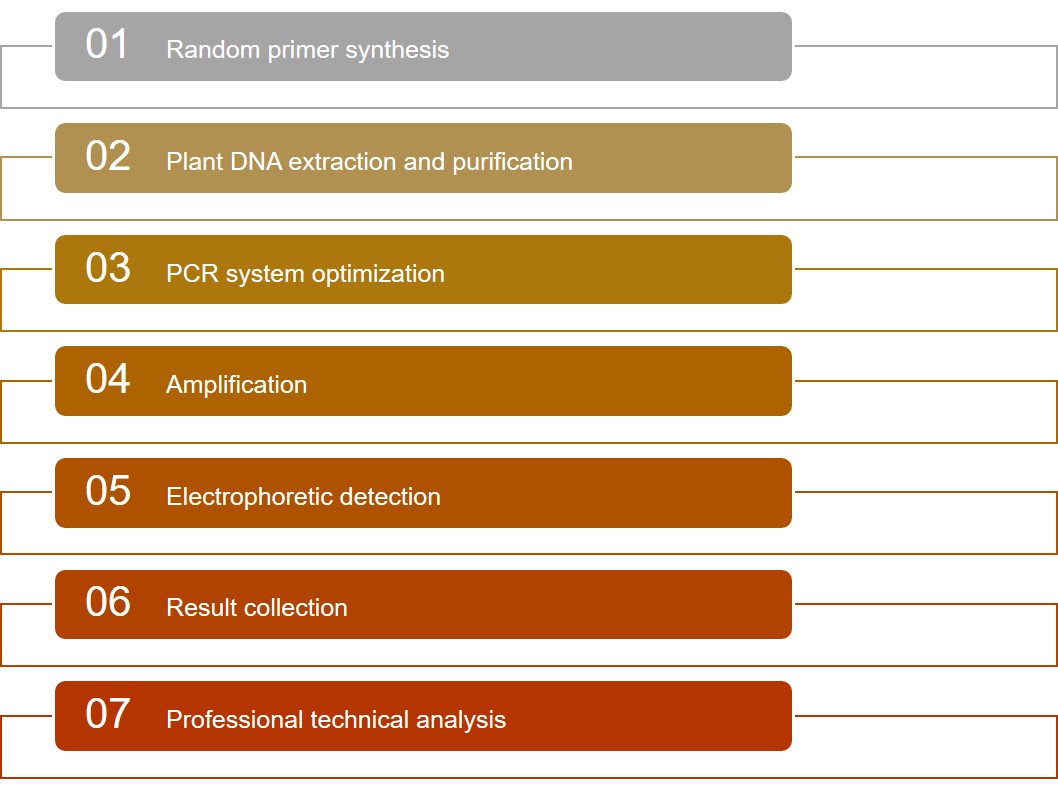The random amplified polymorphic DNA (RAPD) technique is based on PCR technology. It uses a series of oligonucleotide single strands with different randomly arranged base sequences as primers to separate the genomic DNA studied by PCR amplification polyacrylamide or agarose electrophoresis, and detect the polymorphism of amplified DNA fragments by staining or autoradiography. The polymorphism of DNA fragments of these amplified products reflects the DNA polymorphism of the corresponding regions of the genome. RAPD can detect the polymorphism of the whole plant genomic DNA. Lifeasible provides professional, accurate, and fast RAPD technology services to customers worldwide.
 Figure 1. Schematic diagram of RAPD reaction for 2 loci. (Bardakci F, et al. 2001)
Figure 1. Schematic diagram of RAPD reaction for 2 loci. (Bardakci F, et al. 2001)
Due to the simplicity and low cost of the RAPD technique, it is widely used in many fields of biology.

Lifeasible provides RAPD technology services for customers around the world, making use of its unique way of detecting DNA polymorphism and its fast and simple characteristics to provide you with a full range of services for plant genome polymorphism research.

Lifeasible offers complete, professional RAPD technology service, as well as customized experimental protocols based on your project requirements and plant sample characteristics. For more information, please contact Lifeasible.
Reference:
Lifeasible has established a one-stop service platform for plants. In addition to obtaining customized solutions for plant genetic engineering, customers can also conduct follow-up analysis and research on plants through our analysis platform. The analytical services we provide include but are not limited to the following:
Get Latest Lifeasible News and Updates Directly to Your Inbox
Adaptive Evolutionary Mechanism of Plants
February 28, 2025
Unraveling Cotton Development: Insights from Multi-Omics Studies
February 27, 2025